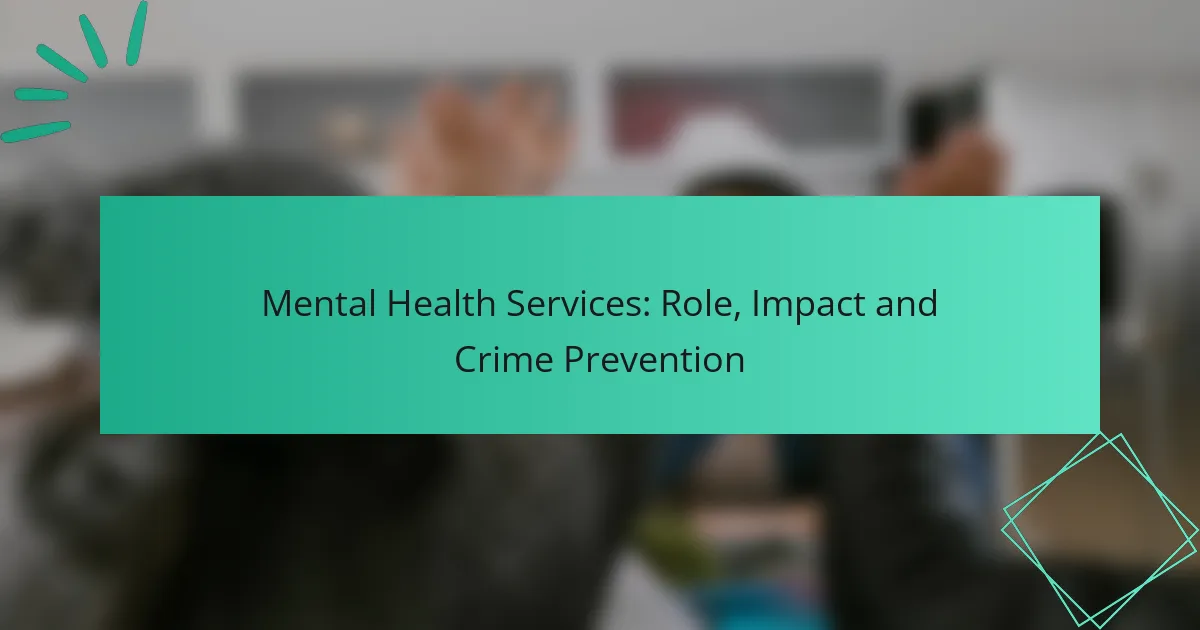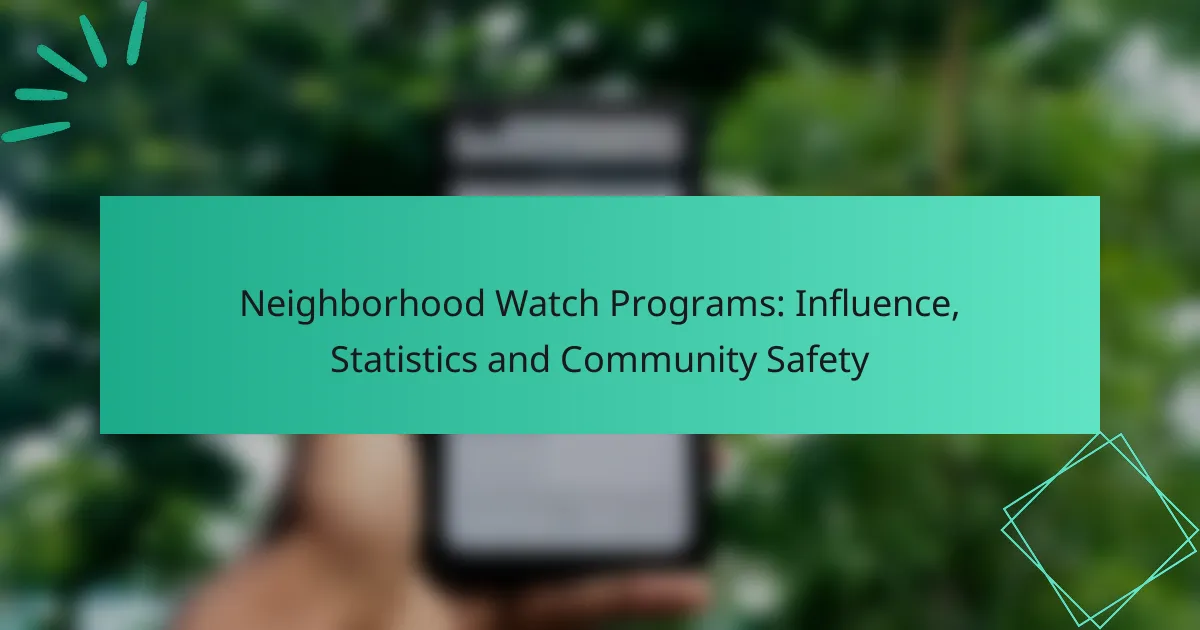Mental health services are essential in the UK for crime prevention, as they tackle the psychological issues that often underlie criminal behavior. By offering therapy, psychiatric support, and community resources, these services not only aid individuals in managing their mental health but also contribute to safer communities by reducing the chances of reoffending.
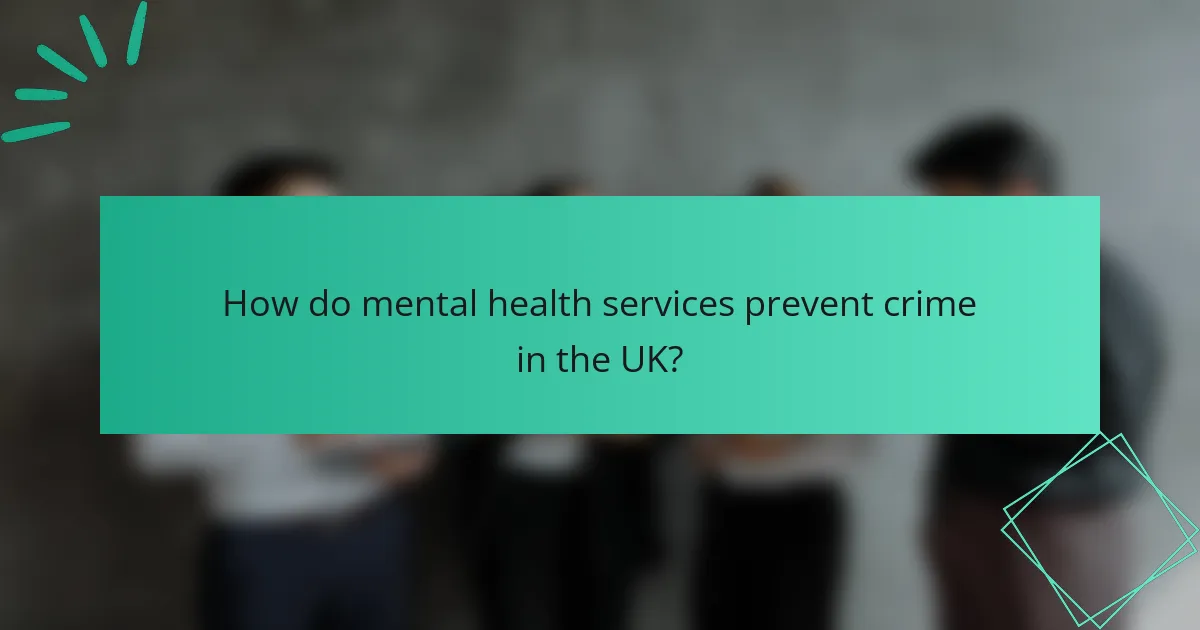
How do mental health services prevent crime in the UK?
Mental health services in the UK play a crucial role in preventing crime by addressing underlying psychological issues that may lead individuals to engage in criminal behavior. By providing therapy, support, and community resources, these services help reduce the likelihood of reoffending and promote safer communities.
Reduction of recidivism through therapy
Therapeutic interventions are essential in reducing recidivism rates among individuals with mental health issues. Programs such as cognitive behavioral therapy (CBT) can help offenders understand their thoughts and behaviors, leading to better decision-making. Research indicates that effective therapy can lower reoffending rates by significant margins, often in the range of 20-30%.
Additionally, ongoing support after release from prison is vital. Regular check-ins and access to mental health resources can help individuals reintegrate into society, reducing the chances of returning to crime.
Community outreach programs
Community outreach programs are designed to connect individuals with mental health services before they encounter the criminal justice system. These initiatives often include workshops, support groups, and educational resources aimed at raising awareness about mental health issues. By fostering a supportive environment, communities can help individuals seek help proactively.
Examples of successful outreach programs in the UK include local mental health awareness campaigns and partnerships with schools to identify at-risk youth. Such programs can significantly reduce the likelihood of criminal behavior by addressing mental health needs early on.
Collaboration with law enforcement
Collaboration between mental health services and law enforcement is critical for effective crime prevention. Police departments often work with mental health professionals to develop crisis intervention teams that respond to incidents involving individuals in mental health crises. This approach helps de-escalate situations and connect individuals with appropriate care rather than leading to arrest.
Moreover, training law enforcement officers to recognize mental health issues can improve interactions with the public, ensuring that individuals receive the support they need. This partnership not only enhances community safety but also promotes a more compassionate approach to policing.
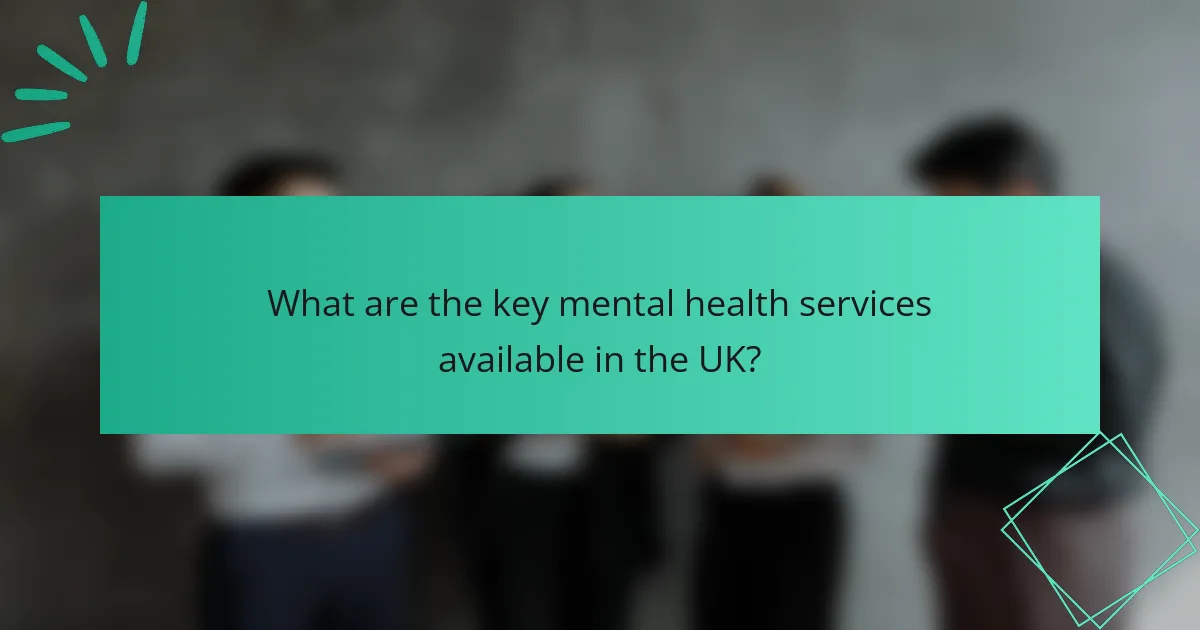
What are the key mental health services available in the UK?
The UK offers a variety of mental health services aimed at addressing different needs, including therapy, psychiatric support, and substance abuse counseling. These services are designed to provide individuals with the necessary tools and support to manage their mental health effectively.
Cognitive Behavioral Therapy (CBT)
Cognitive Behavioral Therapy (CBT) is a widely used treatment that focuses on changing negative thought patterns and behaviors. It typically involves structured sessions with a trained therapist, where patients learn to identify and challenge their cognitive distortions.
CBT is often recommended for conditions such as anxiety disorders, depression, and PTSD. Sessions may last around 45 to 60 minutes and can be conducted in person or online, making it accessible for many individuals.
Psychiatric support
Psychiatric support involves assessment and treatment provided by mental health professionals, including psychiatrists and clinical psychologists. This service may include medication management, therapy, or a combination of both, tailored to the individual’s specific needs.
Individuals seeking psychiatric support can expect an initial evaluation to determine the best course of action. Regular follow-ups are essential for monitoring progress and adjusting treatment plans as necessary.
Substance abuse counseling
Substance abuse counseling focuses on helping individuals overcome addiction and manage substance use disorders. This service often includes individual or group therapy sessions that address the psychological aspects of addiction and provide coping strategies.
In the UK, substance abuse counseling may be part of a broader treatment program that includes medical support and community resources. Effective counseling can significantly improve recovery outcomes, often requiring ongoing commitment and support from both professionals and peers.
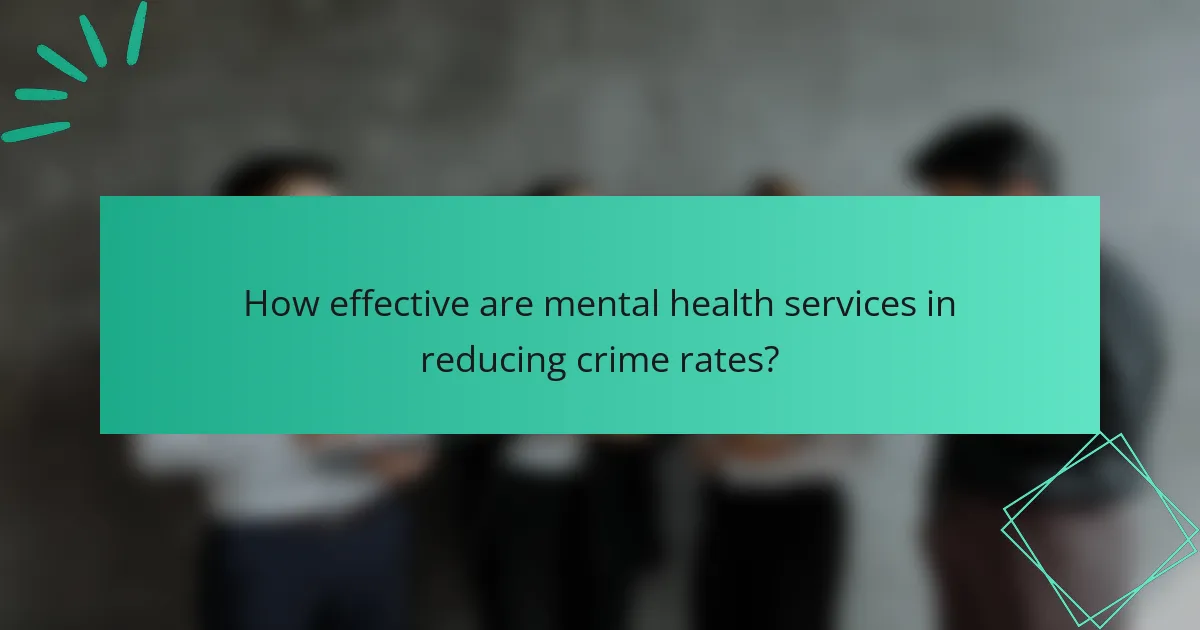
How effective are mental health services in reducing crime rates?
Mental health services play a significant role in reducing crime rates by addressing underlying psychological issues that can lead to criminal behavior. By providing treatment and support, these services can help individuals manage their conditions, thereby decreasing the likelihood of reoffending.
Statistical evidence from UK studies
Research in the UK has shown a correlation between access to mental health services and reduced crime rates. Studies indicate that individuals receiving mental health treatment are less likely to engage in criminal activities, with some reports suggesting reductions in reoffending rates by up to 30% among treated populations.
Furthermore, a comprehensive analysis of various programs revealed that early intervention and consistent support significantly lower the risk of criminal behavior, particularly among youth and individuals with severe mental health issues.
Case studies of successful interventions
One notable case is the implementation of the “Diversion Scheme” in London, which redirects individuals with mental health issues away from the criminal justice system and into appropriate treatment. This program has successfully reduced the number of individuals incarcerated for minor offenses related to their mental health conditions.
Another example is the “Mental Health Court” initiative, which allows judges to mandate treatment for offenders with diagnosed mental health disorders. This approach has shown promising results, with many participants reporting improved mental health and a significant decrease in recidivism rates.

What role do community mental health programs play?
Community mental health programs are essential in providing accessible mental health services, promoting well-being, and preventing crises. They focus on early intervention, support for vulnerable populations, and reducing the stigma associated with mental health issues.
Early intervention strategies
Early intervention strategies aim to identify and address mental health issues before they escalate. These programs often include screening and assessment, which help in recognizing symptoms early, allowing for timely support and treatment. For example, community workshops may educate individuals on recognizing signs of distress in themselves or others.
Effective early intervention can significantly reduce the severity of mental health conditions. Implementing programs in schools or workplaces can create a proactive environment where mental health is prioritized, leading to healthier communities.
Support for at-risk populations
Community mental health programs provide targeted support for at-risk populations, including low-income individuals, minorities, and those experiencing homelessness. These programs often offer tailored services such as counseling, crisis intervention, and case management to address specific needs.
For instance, mobile mental health units can reach underserved areas, ensuring that individuals receive necessary care without the barriers of transportation or financial constraints. Collaborating with local organizations can enhance outreach and effectiveness, creating a network of support for those in need.
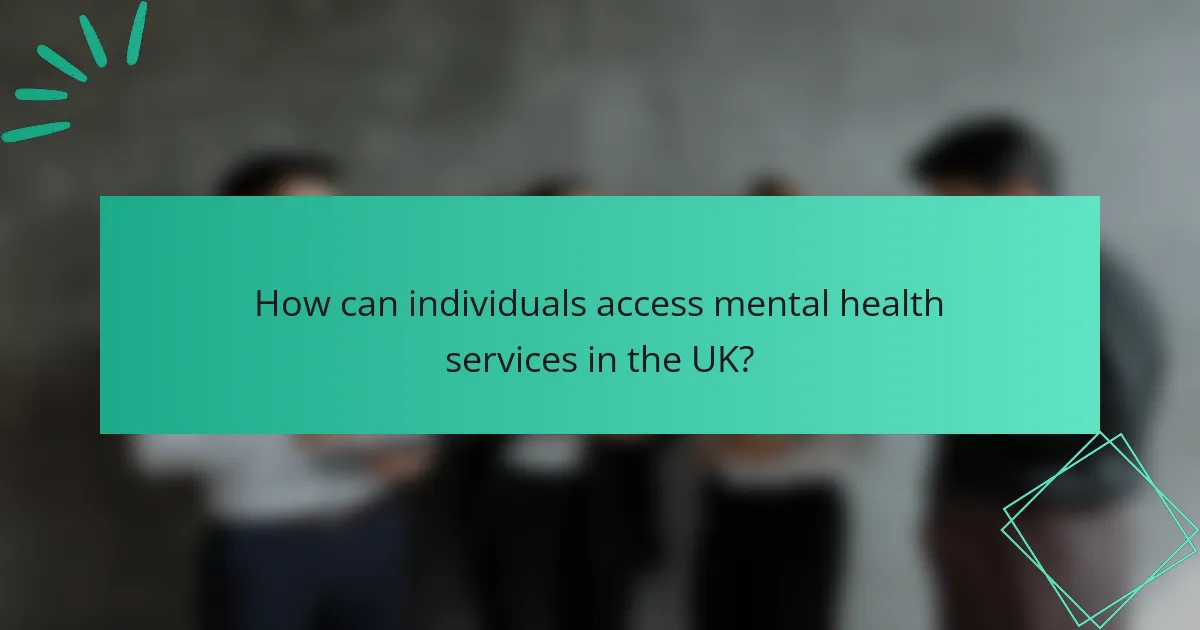
How can individuals access mental health services in the UK?
Individuals in the UK can access mental health services through the National Health Service (NHS) or private providers. The process typically involves a referral from a general practitioner (GP) or direct contact with private services, depending on personal preference and financial considerations.
NHS referral process
The NHS referral process begins with a visit to a GP, who will assess the individual’s mental health needs. If necessary, the GP can refer the patient to a specialist service, such as a psychologist or psychiatrist, within the NHS framework.
Waiting times for NHS referrals can vary significantly, often ranging from a few weeks to several months, depending on the urgency of the case and local service availability. Patients are encouraged to discuss any concerns about waiting times with their GP.
Private mental health service options
Private mental health services offer quicker access to specialists without the lengthy waiting times associated with the NHS. Individuals can choose from various providers, including private hospitals, clinics, and online therapy platforms.
Costs for private mental health services can vary widely, typically ranging from £50 to £200 per session, depending on the provider and type of service. It’s essential to check if the provider accepts insurance or if payment plans are available to manage expenses.
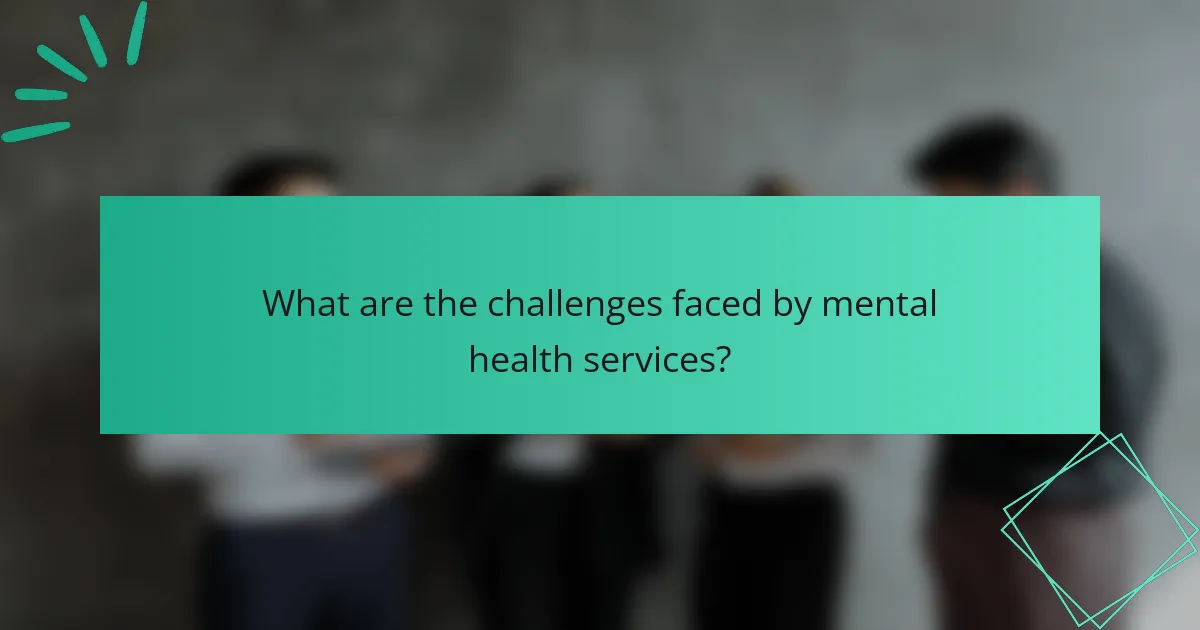
What are the challenges faced by mental health services?
Mental health services encounter several significant challenges that hinder their effectiveness, including funding limitations and societal stigma. These obstacles can restrict access to care and diminish the overall impact of mental health initiatives.
Funding limitations
Funding limitations are a primary challenge for mental health services, often resulting in insufficient resources to meet the growing demand for care. Many mental health programs operate on tight budgets, which can lead to reduced staffing, limited service availability, and inadequate facilities.
In the United States, for example, mental health services receive only a fraction of the overall healthcare budget, which can translate to long wait times for patients seeking help. To address funding issues, stakeholders can advocate for increased government funding and explore alternative funding sources, such as grants or community partnerships.
Stigma around mental health
The stigma surrounding mental health remains a significant barrier to individuals seeking help. Many people fear judgment or discrimination, which can prevent them from accessing necessary services. This stigma can also affect the willingness of healthcare providers to engage in mental health discussions with patients.
Combatting stigma requires community education and awareness campaigns that promote understanding and acceptance of mental health issues. Encouraging open conversations about mental health can help normalize these discussions and empower individuals to seek the support they need without fear of negative repercussions.
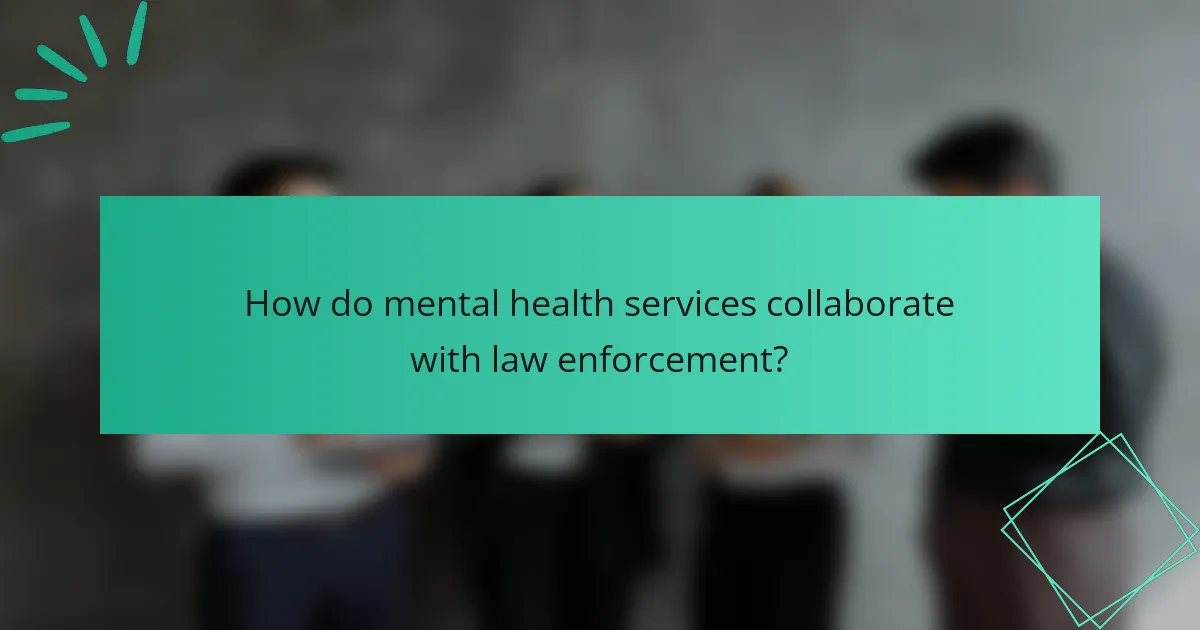
How do mental health services collaborate with law enforcement?
Mental health services collaborate with law enforcement to ensure a coordinated response to individuals experiencing mental health crises. This partnership aims to enhance public safety, improve outcomes for individuals in distress, and reduce the likelihood of criminal behavior associated with untreated mental health issues.
Joint training programs
Joint training programs between mental health professionals and law enforcement officers are essential for fostering understanding and effective communication. These programs typically cover crisis intervention techniques, mental health awareness, and de-escalation strategies, equipping both parties to handle situations involving individuals with mental health challenges more effectively.
For example, a program might include role-playing scenarios where officers practice responding to a mental health crisis, allowing them to apply learned techniques in a controlled environment. Such training can lead to improved interactions and outcomes in real-life situations.
Information sharing protocols
Information sharing protocols facilitate the exchange of relevant data between mental health services and law enforcement, enhancing their collaborative efforts. These protocols often outline what information can be shared, under what circumstances, and the methods for sharing, ensuring compliance with privacy regulations.
For instance, a protocol might allow law enforcement to access mental health records in emergencies, enabling them to understand a person’s history and needs better. However, it is crucial to balance this with the individual’s right to confidentiality, making clear guidelines essential for effective collaboration.
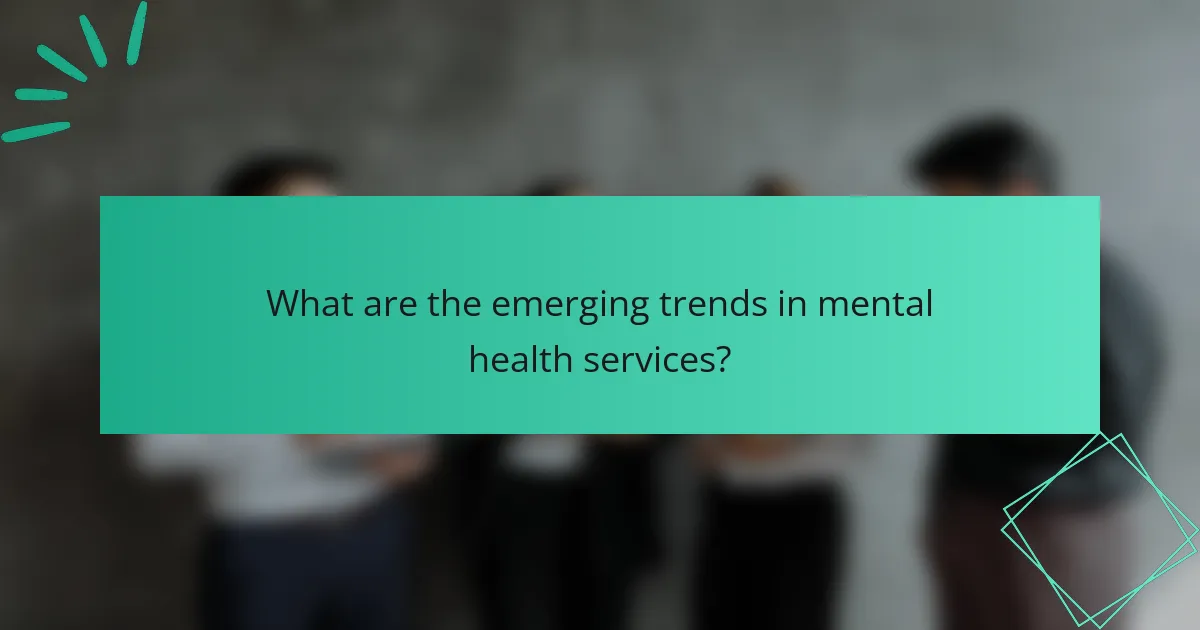
What are the emerging trends in mental health services?
Emerging trends in mental health services focus on increased accessibility, integration with technology, and a holistic approach to treatment. These trends aim to address the growing demand for mental health support while improving outcomes through innovative methods.
Telehealth and Remote Services
Telehealth has revolutionized access to mental health services by allowing individuals to connect with professionals from the comfort of their homes. This approach is particularly beneficial for those in rural areas or with mobility challenges, as it reduces barriers to care.
Many providers now offer video consultations, phone therapy, and even chat-based support, making it easier for patients to seek help. However, it’s essential to ensure that these services comply with local regulations and maintain confidentiality.
Integration of Technology
The integration of technology in mental health services includes the use of apps and online platforms for self-monitoring and support. These tools can help individuals track their mood, manage symptoms, and access resources on demand.
While technology can enhance treatment, it’s crucial to choose reputable applications that prioritize user privacy and data security. Users should look for platforms that are backed by mental health professionals and offer evidence-based practices.
Focus on Holistic Approaches
There is a growing emphasis on holistic approaches that consider the whole person, including physical, emotional, and social factors. This trend encourages collaboration among various health professionals to provide comprehensive care tailored to individual needs.
Practices such as mindfulness, nutrition, and exercise are increasingly incorporated into treatment plans. Patients are encouraged to engage in lifestyle changes that support their mental well-being alongside traditional therapies.
Community-Based Services
Community-based mental health services are gaining traction as they promote local support systems and reduce stigma. These services often include peer support groups, outreach programs, and educational workshops that empower individuals to seek help.
By fostering a sense of community, these initiatives can enhance social connections and improve overall mental health outcomes. It’s important for communities to invest in these resources to create an inclusive environment for mental health support.
